S'WAK POLLS As the rain drizzled, a scrim of cigarette smoke hung in the air before drifting away beyond the rafters.
With a few dozen hours left to polling, the final push of a frenzied campaign is not the best of moments for an opposition leader to attempt to quit smoking.
Chong Chieng Jen, 45, DAP's state chief, has been wanting to drop the habit for the past decade.
After winning the sole opposition parliamentary seat in 2004, Chong's workload has been significantly increased after taking over state party leadership when his predecessor, Wong Ho Leng, passed away from cancer in 2014.
By then, DAP has become the dominant opposition component, having added to its roster of leaders an additional 11 state assemblypersons and four parliamentarians.
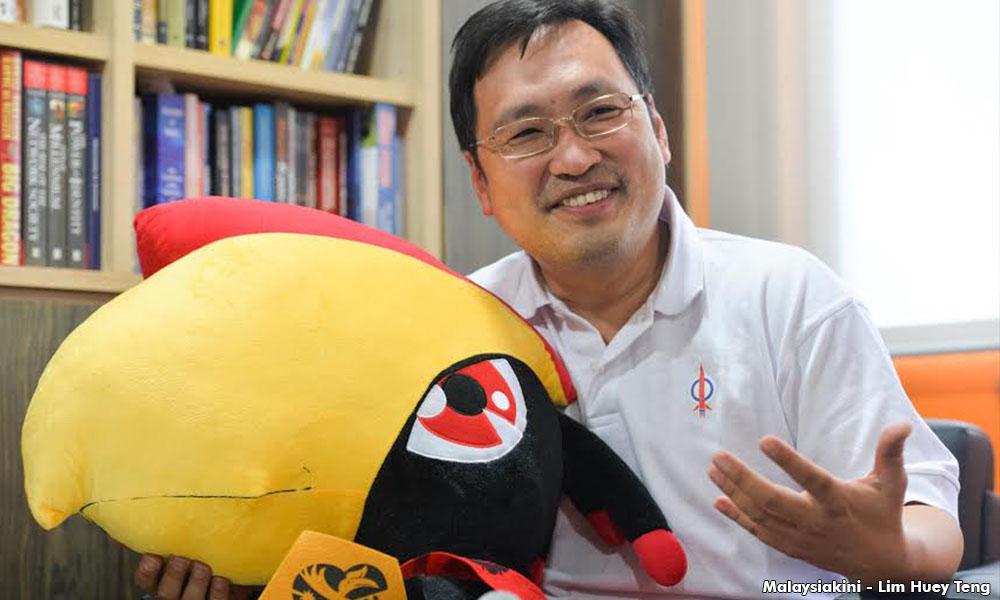 Party workers spoke of Chong's (photo) embarrassment at smoking publicly, but such niceties have long since been swept aside, along with properly brushed hair, crisp ironed shirts and palms that do not glisten with the sweat of a hundred people.
Party workers spoke of Chong's (photo) embarrassment at smoking publicly, but such niceties have long since been swept aside, along with properly brushed hair, crisp ironed shirts and palms that do not glisten with the sweat of a hundred people.
Meals are no longer taken at regular intervals, and are wolfed down by both party volunteers and the candidates they support.
Despite the volunteers' haphazard appearance, the party's campaign appeared to be held together well enough, considering it was carried out without the backing of government machinery, such as the state's information department, and with nominal party support from peninsular Malaysia and Sabah.
"We are using technology to make up for any shortcomings. Pictures, video, text messages, anything that can help us. We have no choice because everyone is gunning for us," said Phoong Jin Zhe, a volunteer from Sabah.
Phoong, who is the party's Sabah publicity secretary, updates a party website and several Facebook pages, while other volunteers handle live streaming, Twitter uploads and the updating of Whatsapp groups.
The number of volunteers whittles down slowly as polling day approaches as non-Sarawakians, such as Phoong are made to leave by the state's immigration authorities.
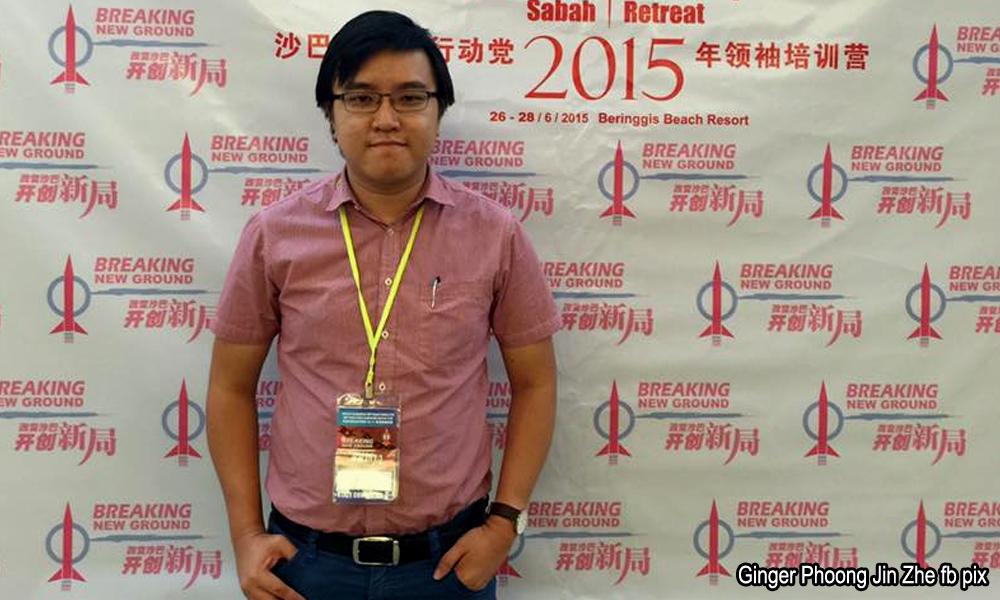 "It's arbitrary. As long as you are not part of a tour group, they'll restrict your stay," said Phoong (photo), who leaves today.
"It's arbitrary. As long as you are not part of a tour group, they'll restrict your stay," said Phoong (photo), who leaves today.
Media representatives are able to move freely within DAP's headquarters in Kuching. All media groups are added into the party's main Whatsapp group, regardless of which organisation they represented.
After candidates conclude their morning walkabouts, press conferences are held daily, and more importantly, predictably, at 2.30pm, so as to not clash with its coalition partner PKR, which holds its press conference in late mornings.
Scoldings are performed via phone to candidates who do not make it from Kuching's outer rim to the afternoon press conferences, which are streamed live.
DAP candidates are then expected to voice their opinions rather than to read out statements. There are no meals or bottled water provided by DAP for media representatives.
Most DAP ceramah streamed live
At nights, most DAP ceramah are streamed live, and sometimes see more viewers online than at the venue itself.
Aside from a communication gap regarding the whereabouts of Penang Chief Minister Lim Guan Eng early this week, party workers kept at Whatsapp, avoiding the less convenient e-mail, or the completely impractical fax.
PKR, unlike DAP, faces the tremendous disadvantage of having most of its candidates campaigning in far-flung rural seats.
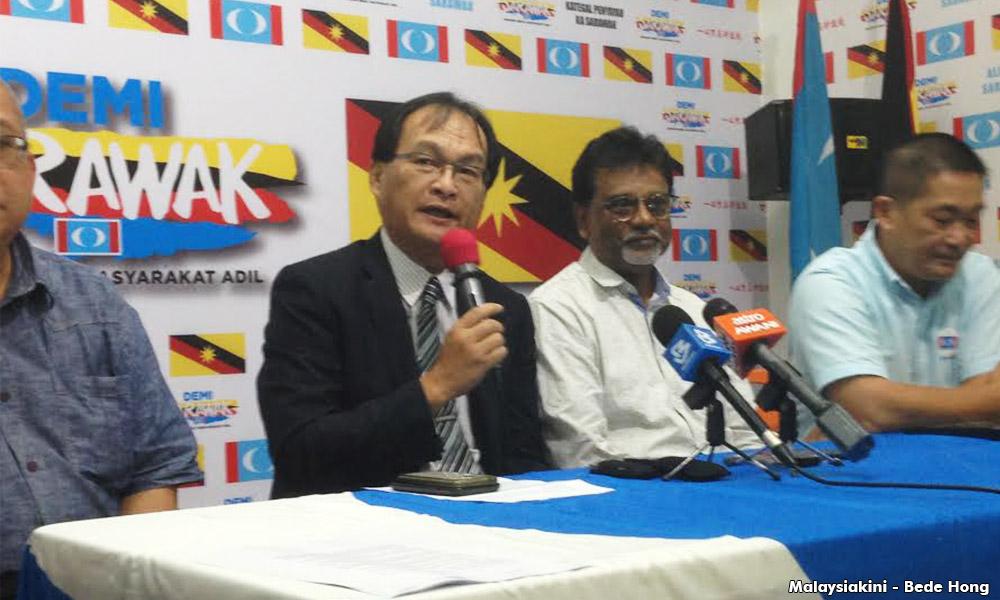 With state PKR leader Baru Bian (photo) campaigning in Ba'Kelalan, a relatively isolated rural area in northern Sarawak, local and peninsular volunteers are made to hold the fort in Kuching.
With state PKR leader Baru Bian (photo) campaigning in Ba'Kelalan, a relatively isolated rural area in northern Sarawak, local and peninsular volunteers are made to hold the fort in Kuching.
Denied easy access to a centralised urban locale where its candidates may gain publicity, PKR has lamented, rightly so, that media coverage of its campaign has been wanting.
But whatever distresses members of its sister coalition party may feel, they are hardly mentioned at DAP headquarters. By late afternoon, volunteers and candidates are usually seen resting by the adjacent coffeeshop before returning home for a shower and a meal.
The candidates then focus on an entirely different skill set: Public speaking.
The intermittent rain and online access have shaven off the number of audiences at speaking venues. Drawing down numbers further is the lack of notable national speakers, not only from DAP, but from PKR as well.
By-standers spoke of missing out on popular speakers such as Taiping MP Ngah Kor Miang or Hew Kuan Yau, an outspoken museum curator, both of whom have been barred entry.
PKR's de facto leader Anwar Ibrahim, always a crowd draw, is in jail serving time for sodomy.
Other notable leaders such as PKR vice-president Nurul Izzah Anwar (photo) have been banned.
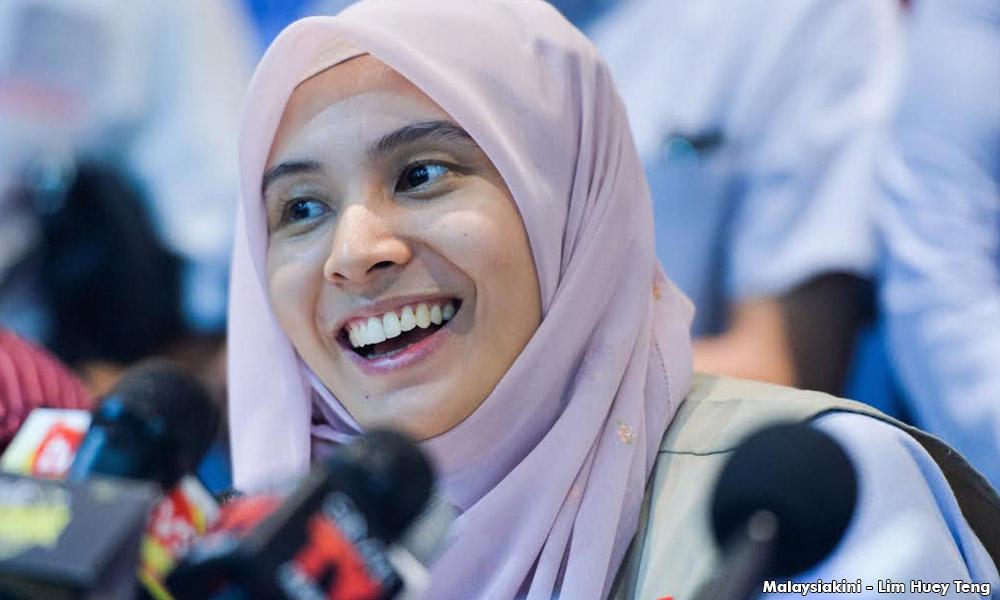 While Skype provides a platform for barred speakers, the other-worldliness of watching a DAP leader speak alone in a room 1,000km away could never hope to match the thrill of witnessing an interactive live performance.
While Skype provides a platform for barred speakers, the other-worldliness of watching a DAP leader speak alone in a room 1,000km away could never hope to match the thrill of witnessing an interactive live performance.
State DAP compensates by increasing the workload of its more capable speakers, with Chong himself averaging three speeches per night at different parts of the capital, or the surrounding towns.
Crowds still come out to hear out DAP speakers, perhaps precisely because of the taboo and macabre topics its speakers tend to gravitate towards.
Late in the campaign, it is still shocking to hear topics - often regarded as impolite dinner table conversations and were only ever spoken over the office water-cooler in hushed tones - shouted about so casually.
As a testament to their effectiveness, Hokkien words like "pek moh" (white hair) have creeped into the national conversation, with both online readers and the Sarawak Chief Minister Adenan Satem himself, using those words as a diminutive term for Sarawak governor Abdul Taib Mahmud.
'First-class vulgarian'
A local favourite who speaks mostly in local Hokkien is DAP candidate for Pending Violet Yong, who said public speaking did not come naturally for her.
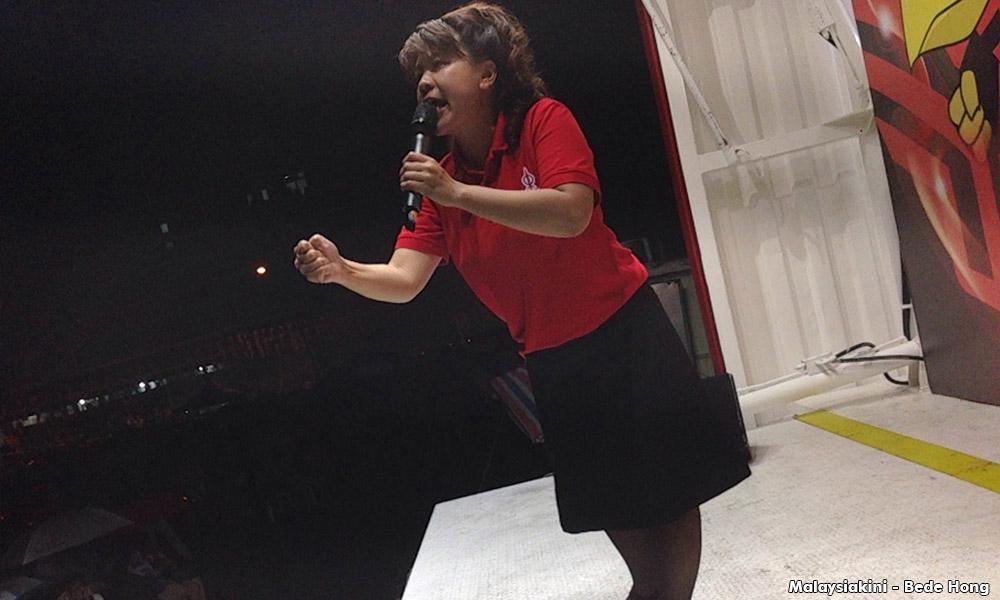 "I just started in 2006, and I suffered from stage fright. My family is more of the outspoken type. I tend to only speak when necessary," Yong (photo) said.
"I just started in 2006, and I suffered from stage fright. My family is more of the outspoken type. I tend to only speak when necessary," Yong (photo) said.
"My style of talking is more of folksy humor," she added.
State DAP's traditional opponent, the Sarawak United People's Party (SUPP) has criticised Yong, placing banners up describing her as "first-class vulgarian".
Indeed, each night, without fail, Yong questioned the manhood of SUPP's president Dr Sim Kui Hian, for not challenging her and for contesting against her "little sister" DAP candidate for Batu Kawah, Christina Chiew.
Sim had contested against Yong in 2011 and lost, garnering 6,780 votes against Yong’s 14,375 votes. This election, Sim is contesting against Chiew, who is Yong's former assistant.
"I cannot force everyone to like my speech. But I do try to make them as entertaining as possible to liven up the crowd," said Yong.
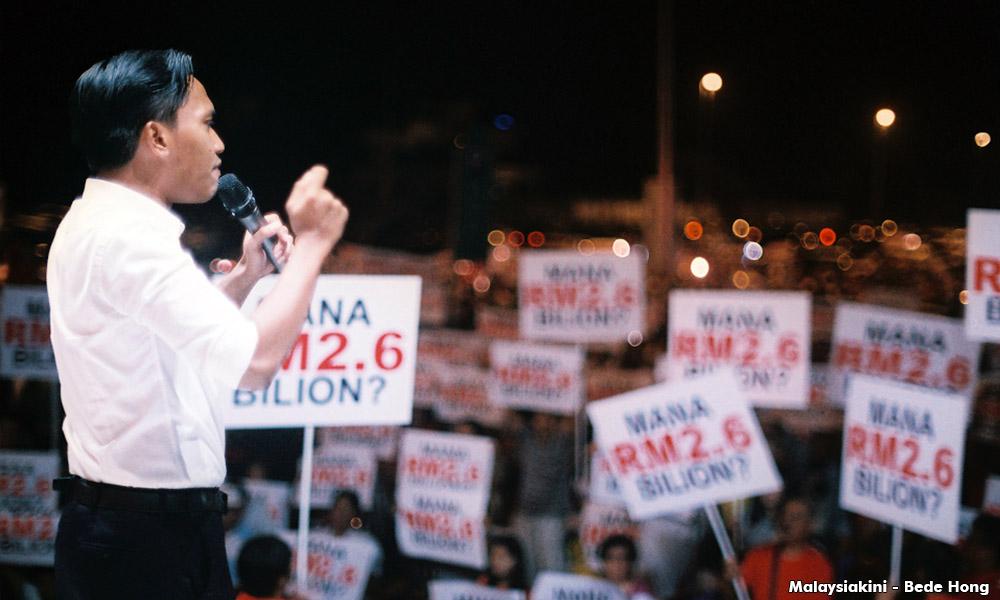 Another popular speaker, making his debut, is DAP candidate for Batu Kitang Abdul Aziz Isa (photo).
Another popular speaker, making his debut, is DAP candidate for Batu Kitang Abdul Aziz Isa (photo).
"His speech is Anwar-like. He's definitely one of the stronger ones," said Hasli Hanida, 28, a party volunteer from Kulai, Johor after a speech in Padawan.
Anwar, in fact, is one of Abdul Aziz's speaking idols.
"I watch a lot of videos of Soekarno," Abdul Aziz said. Other figures of interest are Nga Kor Ming, from whom some Mandarin inflections were picked up, and Amanah chairperson Mohamad Sabu.
Abdul Aziz admitted he is a shy introvert who prefers reading Immanuel Kant, an 18th century German philosopher who is considered the central figure of modern philosophy.
"I am the thinking type, always trying to be analytical. But I hate stereotypes, prejudice and discrimination."
He added that he does not plan ahead for his speeches.
"It's not that easy as I'm always nervous before going on stage. But I always speak from the heart, and without a script. I think it helps because people would know immediately if you are not sincere," Abdul Aziz said.
Sarawak goes to the polls tomorrow.

